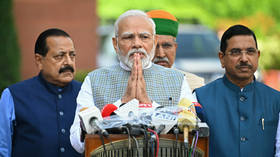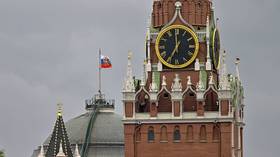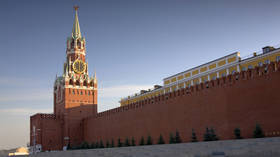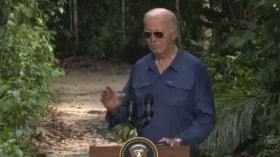India set to pass bill reserving space for women in politics

The Indian government introduced the long-awaited Women's Reservation Bill on Tuesday, aiming to allocate more seats for females in the national and state legislatures.
Indian Prime Minister Narendra Modi, who addressed both houses of parliament on the inaugural day of a five-day special session, urged members to unanimously pass the bill, emphasizing its potential to enhance democracy.
“During [former Prime Minister] Atal Bihari Vajpayee's government, the Women's Reservation Bill was introduced several times, but there was not a majority to pass the bill, and because of this, this dream remained incomplete. Today, God has given me the opportunity to take this forward,” Prime Minister Modi stated in a speech in the lower house’s chamber.
The bill, aiming to reserve one-third of seats in the lower house of the national parliament and state assemblies for women, was presented in the Lok Sabha, the lower house of the parliament, by India's Minister of Law and Justice, Arjun Ram Meghwal.
Women currently account for little over 15% of the lower house with 82 serving as members of parliament in the 545-member Lok Sabha.
“It is a very important bill,” Meghwal said while introducing the bill, adding that the Modi-led government has taken a “revolutionary step” to benefit women in India.
Commerce and Industry Minister Anupriya Patel told ANI news agency that the bill will pave the way for “women-led development” in India. “It is important that our women become elected representatives and contribute to discussions on laws which are to benefit our country, while also sharing their experiences and thoughts. They should be able to contribute to the legislative process,” she added.
On Monday, Indian media reported that the Union Cabinet, the highest decision-making body in the country, convened under the leadership of Prime Minister Modi. The cabinet deliberated for over an hour and a half and ultimately approved the bill. This decision followed closely on the heels of the Supreme Court of India’s recent inquiry into the central government's ambiguity regarding women’s representation in the legislature just a month prior.
Meanwhile, India's main opposition party, the Indian National Congress, asserts that the bill was its brainchild. A similar piece of legislation, known as the Constitution (108th Amendment) Bill, also called the Women's Reservation Bill, was initially passed in the upper house of parliament, the Rajya Sabha, in March 2010 during the Congress-led United Progressive Alliance (UPA) government’s tenure. However, the bill quietly languished before the Lok Sabha and was not reintroduced.
“If the government introduces the Women's Reservation Bill tomorrow,” senior Congress party leader P. Chidambaram asserted on X (formerly Twitter), “it will be a victory for the Congress and its allies.”
Other Congress leaders have questioned the timing of introducing the bill in the parliament. “Why did Modi wait for almost 10 years to take this forward? Because 2024 is around the corner,” senior Congress leader Kapil Sibal told ANI.
The bill's complete implementation hinges on the definition of new parliamentary constituency boundaries and the upcoming census, scheduled for 2027, as per NDTV. Should the bill successfully pass, the enactment of women's reservation is anticipated for the 2029 election, according to the report.
The current special parliamentary session is slated to run through Friday, during which eight bills are on the agenda for discussion and approval.













